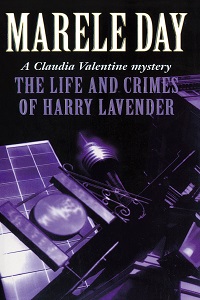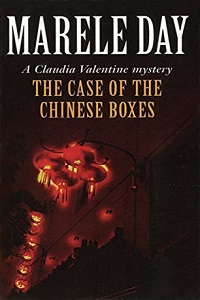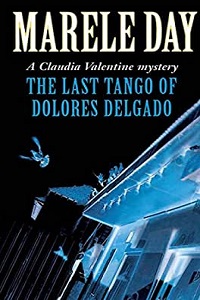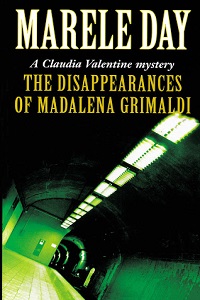 Title : The Big Score
Title : The Big Score
Author : Peter Corris
Publisher : Allen & Unwin
ISBN : 9781741752236
Pages : 214
Date Published : Dec 2007
Sub-Genre : Private Detective
Peter Corris has taken his private detective through all manner of hairy situations over the year with varying degrees of success and heartache. In The Big Score, Cliff Hardy is put through his paces, short story style, with his usual no-nonsense attitude, smart-arsed disregard for authority and genius sifting through the chaff to get at the wheat.
Plenty of familiar names and faces make appearances, seen at various stages during the 30 plus books in which Cliff has operated to date. Getting a mention are familiar names like girlfriend Lily Truscott, movie director Bruce Haxton, Cliff’s reliable doctor Ian Sangster, Harry Tickener who has been a faithful source from the very first book and, of course, his ex-wife Cyn gets a mention or two.
This can be a trip down memory lane for you or simply a chance to enjoy the rough and tumble, attitude-fuelled detective as he bullocks his way around Sydney and straight to the heart of the matter.
A quick overview of each of the 11 stories will give you the best idea of what you’re in for when you tackle The Big Score.
Ram Raid : Cliff arrives home to his Glebe house to a welcoming committee of the local cops, one of whom informs him that he is wanted for questioning regarding a shooting. The man he was supposed to have shot was a crim named Cleve Harvey, a bloke Cliff has butted heads with on the odd occasion. To save himself, Cliff has to find out who the real shooter was and why he was implicated.
Copper Nails : It’s a story Sydneysiders may have read about in the local papers. Trees blocking the view of the ocean from a certain set of apartments are suddenly starting to wither and die. Cliff has to find out who is the most likely to benefit from the improved view…and then prove it.
D-i-v-o-r-c-e : Cliff is hired to investigate the husband of a couple going through a sticky divorce. The suspicion is that he’s hiding some of his assets to reduce the settlement he will be obliged to pay. This is a case in which Cliff has to use his charm rather than his brawn and makes a pretty good fist of it.
Crime Writing : A con artist contacts Cliff from the Silverwood Correctional Facility where he has been writing his memoirs, the contents of which he promises will blow some pretty hefty lids off some major names. The manuscript was typed up, old style, on a typewriter and is the only copy. He tells Cliff that he gave it to a screw to smuggle out of the prison so that it could be taken to his literary agent, but the prison guard has disappeared, along with the manuscript. Cliff has to find the guard and the manuscript, but nothing’s ever that straight forward.
Blackmail : The wife of a movie director has been kidnapped and Cliff is hired to find her. But wait a sec, the title of this story is Blackmail, not Kidnap, something screwy’s going on here. It’s a good thing Cliff’s around to drink loads of booze and throw his weight around, all in the line of duty while unravelling a very tangled problem.
Last Will and Testament : A former client is in the final stages of a terminal illness and hires Cliff to track down his ex-wife and child so that he can leave them his fortune. Hardy’s hunt takes him to Wollongong as he chases down an aboriginal former boxer turned country singer in a moving, yet low-key job. This particular story contains many of the elements (compassion, understanding, forthrightness) that makes Cliff Hardy the complicated protagonist that makes him so popular.
Break Point : An up and coming tennis pro has a tendency to go walkabout after playing his tournaments. A sports management agency keen to sign the kid is concerned he might be getting up to no good. Cliff is hired to find the truth and instead finds himself in the middle of a moral dilemma.
Worst Case Scenario : Cliff recounts an investigation at the prompting of his girlfriend Lily and tells a story that would have to be the stuff of nightmares for any private investigator. It’s a story designed to shock and achieves its goal with brutal frankness.
Bookworm : This is an unusual story about a book thief who is stealing the same obscure book from used bookstores around the country. Cliff is hired to take part in a set-up to catch the thief red-handed. Things don’t really go to plan, but there’s a deeper story behind the object of many thefts.
Patriotism : The final story takes Hardy away to a survival camp - an army-type group that undergoes a military experience. Cliff is there to keep an eye on his client’s son. His client is afraid the group could be a terrorist front. In no time flat cliff has gotten under the skin of the camp leader and finds himself ejected from the place but not before he gets involved in a daring escape bid.
The stories that make up The Big Score are diverse and are pure Cliff Hardy at his unpredictable best. Not all investigations have neat endings and so, not all of these stories end neatly. However, they do make you think, asking you to put yourself in the hot seat and challenges you to come out smelling as fresh as Hardy.

















